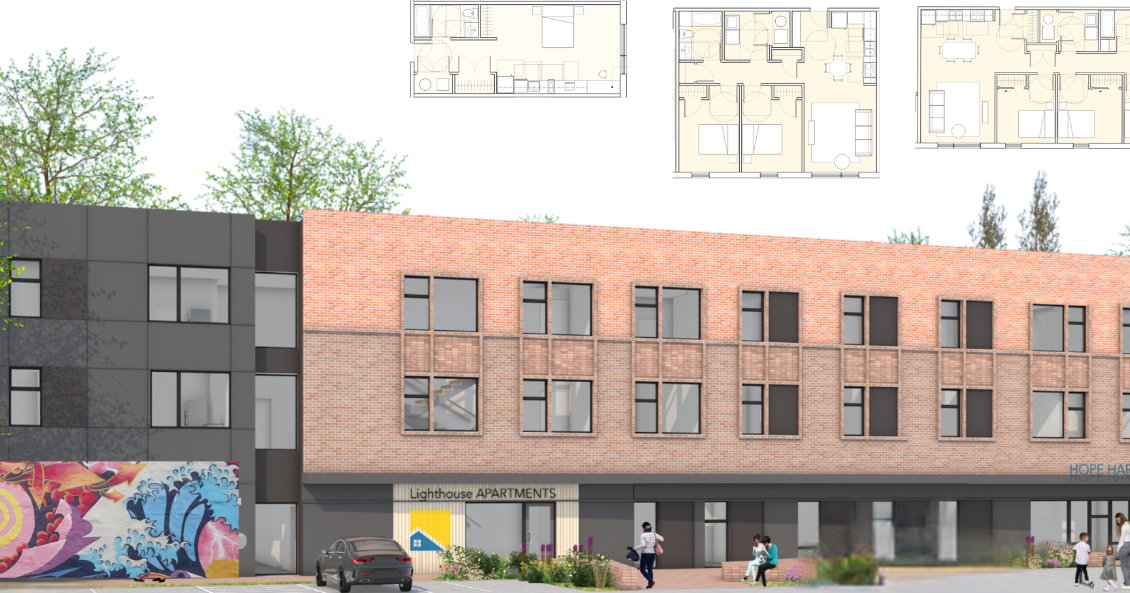The Nebraska Department of Economic Development (DED) has opened the second round of funding under the HOME Investment Partnerships American Rescue Plan (HOME-ARP) program, aimed at expanding affordable rental housing across the state.\n\nIn the initial round in August 2024, DED awarded over $10 million to four organizations. Among them, Hope Harbor, a nonprofit based in Grand Island, received $5.8 million for its Lighthouse Apartment project, a $10.7 million development that will deliver 20 affordable units. Liz Mayfield, the organization’s executive director, emphasized the critical role of the grant: “The HOME-ARP funding was essential. It served as our primary capital source and enabled us to attract additional private donations.” She added that without this public support, securing further investment would have been unlikely.\n\nAffordable housing remains a pressing challenge in Nebraska. According to the National Low Income Housing Coalition, only 37 rental units are available for every 100 low-income households. To meet demand, the state requires approximately 37,000 additional homes.\n\nMayfield also pointed to a specific gap in central Nebraska: a lack of supportive housing for vulnerable populations, including those experiencing homelessness or fleeing domestic violence. Grand Island falls within a 22-county region in the Balance of State Continuum of Care that currently has no such housing. As a result, individuals in need may be forced to relocate far from their communities to access services.\n\nNebraska’s Continuum of Care system includes separate programs for Lincoln and Omaha, while the rest of the state operates under the Balance of State framework. In the first funding cycle, North Platte received $1 million, Fremont was awarded $3.5 million, and Norfolk secured $1 million for similar housing initiatives.\n\nThe latest round of HOME-ARP funding aims to build on these efforts, supporting more developments that address both general affordability and specialized housing needs.\n— news from Nebraska Public Media\n\n— News Original —\nNebraska Department of Economic Development releases second round of HOME-ARP funds\nThe Nebraska Department of Economic Development released its second round of applications Thursday for the development of affordable rental housing through the HOME Investment Partnerships American Rescue Plan Program today. n nIn August 2024, during the first round of applications, DED awarded over $10 million to four organizations in the state. Hope Harbor, a Grand-Island based non-profit, received $5.8 million for its $10.7 million Lighthouse Apartment project, which will consist of 20 affordable housing units. n nLiz Mayfield, Hope Harbor’s executive director, said the HOME-ARP funds not only covered more than half of the total cost, but they also encouraged private donors to invest in the low-income housing project. n n“The HOME-ARP funding was essential. It was our initial funding source and then we’ve been able to fundraise from there for the remainder of it.” Mayfield said. “I think without that, I know for sure there would not have been other funders to come to the table.” n nAcross Nebraska, limited access to affordable housing continues to be an issue. According to the National Low Income Housing Coalition, 37 rental homes are affordable and available for every 100 low-income households. The state needs 37,000 more homes to meet the need. n nMayfield acknowledged the overarching issue of the unavailability of affordable housing. However, she said central Nebraska has a unique shortage of supportive housing, or housing for vulnerable individuals who may be experiencing homelessness or are at risk for domestic violence, assault or stalking. n nGrand Island belongs to region 2 within the Balance of State Continuum of Care, which is a federal program that the state participates in. Families who apply are assessed and ranked by highest priority. With less affordable housing in their region, they may have to move farther away to receive affordable housing. n n“In our region, there’s a 22-county area that has no supportive housing at all. So, if an individual qualified for supportive housing, they would have to relocate out of the area,” she said. n nLincoln and the Omaha area have their own Continuums of Care, while the rest of the state operates within the Balance of State Continuum Care. The three other projects that were awarded funds last year were North Platte with $1 million, Fremont with $3.5 million, and Norfolk with $1 million.
